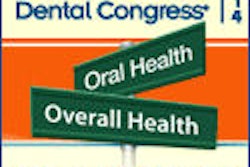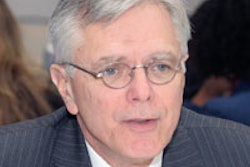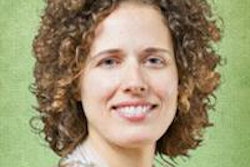
In this latest installment of DrBicuspid.com's Dental Heroes series, we talked with Mark Doherty, DMD, executive director of the DentaQuest Institute, about his contributions to dentistry in dozens of U.S. communities and his efforts to ensure that those individuals who need dental care but can't always afford it are well served.
Dr. Doherty joined the DentaQuest Institute in 2006 as director of the Safety Net Solutions (SNS) program. Under his direction, the program has grown from a pilot in three New England community health centers to a national program serving more than 140 safety net dental programs. He also serves as chief dental officer for the Taunton Oral Health Center and Commonwealth Mobile Oral Health Services.
Prior to joining DentaQuest, Dr. Doherty served as director of oral health services at Dorchester House Multi-Service Center in Boston for nearly 30 years, where he built a safety net dental program that included three separate treatment sites, 18 dental providers, several specialty services, and a staff of more than 40.
DrBicuspid.com: How did you become involved in public health dentistry?
Dr. Doherty: I am a fourth-generation dentist. My great-grandfather was a dentist in Ireland before the turn of the century and his son, my grandfather, also became a dentist. He emigrated to the U.S. and went to dental school and practiced in Taunton. And his son, my uncle, became a dentist, and he is the reason I became a dentist. I decided early on that I wanted to be like my Uncle Jim.
 Mark Doherty, DMD, executive director, DentaQuest Institute
Mark Doherty, DMD, executive director, DentaQuest InstituteLike all the dentists in my family, I thought I was going to be in private practice. But then I just sort of fell into community dentistry, which I knew little about. From 1979 to 2006, I was the dental director at the Dorchester House, a large, federally qualified health center (FQHC) in Boston. And in community dentistry, there is always too much need to adequately meet. You are constantly on roller skates to provide the care, but you never have the full capacity to provide the equitable care the community needs. Back then, Dorchester had a population of more than 100,000, and in the beginning, we had just five chairs. Nearly all of those Dorchester families qualified for care, but with just five chairs we could never make a dent in the number of patients we were trying to treat. But we were always trying. And somewhere along the line, I figured out that if I had more dentists, support staff, and chairs I could accomplish more, and that if I ran the clinic more efficiently and effectively with well-defined operations and systems we could treat a lot more patients.
In 2005, I was asked by DentaQuest to leave the Dorchester House position and share this approach to community oral health service delivery with other health centers in Massachusetts that also were caught up in the daily conundrum of trying to do it all by themselves. DentaQuest recognized that if we step back and define effective and efficient oral health service delivery systems, operations, and approaches, we might do better and might get better results and outcomes. The idea was to think about outcomes and the value proposition involved as much as we think about chairside processes and techniques. And thus Safety Net Solutions was born.
As executive director of the institute, I feel so fortunate. The board and the management really live what they speak. They challenge us every day to find ways to identify innovation, support innovation, grow innovation, and teach innovation. Something that is practical and should be shared. Anything that will improve the oral health of all the people in the areas we serve.
How does the institute differ from DentaQuest and the DentaQuest Foundation?
The mission of DentaQuest is to improve the oral health of all the people in all the regions in which we provide service, and to accomplish this through dental benefits, the creation and transfer of knowledge, efficient and effective service delivery, and philanthropy. So there is DentaQuest, the business which provides prevention-focused dental benefits and administration. The DentaQuest Institute is focused on improving care delivery to emphasize quality, prevention, and disease management. And our philanthropy, the DentaQuest Foundation, makes local and national investments in the systems that contribute to optimal oral health. DentaQuest not only wants to take care of our members through benefits, but also to identify individuals in our area who are in need and provide tools to ensure they get services that benefit their oral health. And DentaQuest stands behind that.
How has the institute grown since you joined?
We are well outside of Massachusetts now in all of our programs and have established a national footprint with many partners. For example, the Safety Net Solutions program, which provides technical assistance in safety net practice management -- in 2006, when I joined DentaQuest, we took the first step to formulate a plan and create a tool to do our enhancements, assessments, and processes. So our plan initially was to work with four to five health centers in Massachusetts each year for four to five years. We planned to assess their practices, then create a strategic plan to make them more efficient and effective.
But what happened was there was no one providing this kind of technical assistance to safety net clinics or community clinics, and we started to get requests from other areas in Massachusetts and then New England. One of the things we struggle with in community dentistry is saying no -- so in 18 months, we found ourselves doing 19 safety net clinics throughout New England. At the end of 2011, we were involved with 140 clinics in 23 states. So there continues to be a market, a need, a yearning for technical assistance relative to practice management in safety net clinics, where the challenges are much different than they are in private practice.
What do you see as the biggest challenges to ensuring adequate dental care for those who cannot afford it?
The biggest challenge is the state of our economy and how it affects oral care, especially for the underserved . As it becomes tighter and more challenging, families and businesses have to make tough choices related to their financial resources. As a nation we continue to grow and our disparities continue to be there, and in some cases to grow also. So as more people find themselves economically challenged and in need of the safety net, and as the government and the nation have less money to spread around, we find a significant population that finds it more challenging to access affordable oral healthcare. At the same time, in the face of this burgeoning need, state and federal governments have less money to allocated toward oral health.
In addition, the evidence shows that if you are from a lower socioeconomic background or culturally or ethnically disparate, you have more disease and fewer resources to take care of that disease -- so where do you go for treatment? A health center or a Department of Health clinic? And as more people seek subsidized care, more pressure is put on the clinics providing that care. So how do we make it work? How do we provide quality dental care that is affordable, that makes people healthier in a financially responsible way? That is our challenge as an Institute: to work with oral health safety net programs and create strategies, operations, and systems to make that happen .
We believe that if we can prevent disease or work with patients to help them manage their own disease, you can stay one step ahead of the ball game. So a lot of our focus is on prevention and disease management. Part of the DentaQuest Institute is a model dental office – the DentaQuest Oral Health Center. And our Oral Health Center practices what we preach: It was named the ADA's Adult Preventive Care Practice of the Year in 2010.
The Oral Health Center provides a lot of initial focus in getting patients comfortable and educated about what they can do for themselves before we step in and work with them. So we work to enable patients to take better care of their oral health, which means that we see less of them because they are managing their disease better. The result is that we can see more patients and provide more care. Everything we do at the institute is predicated on a quality approach. We ask the questions: Is this the right care, for the right person, at the right time? Are we achieving the outcome we want? Is the care affordable? And, have we allowed this patient to continue on his/her own?
It is really about achieving overall wellness, which is not an easy thing to do. Our challenge going forward is to identify those practices that can benefit from this kind of approach, help them capture how this can be done, and integrate this approach into practices that haven't gotten there yet.
Of all the people and patients you have helped over the years, does one stick out in your mind?
When I was young dentist at Dorchester House, we had a young Vietnamese émigré, a teenager named Trang, who came to us for care. And one day she asked me what it would take to become a dental assistant. We had a program for children in the community who wanted to become a dental assistant -- in fact, 50 to 60 of my assistants came out of that program. So we had Trang come in after school three days a week, and my lead assistant at the time took her through the curriculum, and she went through the program and became a dental assistant.
Trang then asked, "What does it take to become a dentist?" She ended up going to Regis College in Boston while working part time in our clinic as an assistant. After she graduated, she applied to Tufts University School of Dental Medicine and was admitted there. After she graduated from Tufts, she again asked me, "What should I do?" and I suggested she try a residency. So she went to Lutheran Medical and did her residency at the Dorchester House. Then she asked, "What would it take to become a dentist here?" And we hired her to become a dentist at the Dorchester House.
About six months ago, I got a call from the Dorchester House saying that the director of our mobile dentistry program -- which has 10 dental teams that go out every day to more than 300 locations to provide oral care to kids in corrective programs -- was going to leave and they needed a new director. I also got a call from Trang, who said she wanted to become the director. I thought it was a marriage made in heaven, and she is now the dental director at the Dorchester House, doing wonderful work.
To me, that is one of the most meaningful things that has happened in my career. It shows what can happen in these settings. And think of the role model she is going to be for other children from that community and for young dentists: Look what can happen when you put your heart on the line.



















